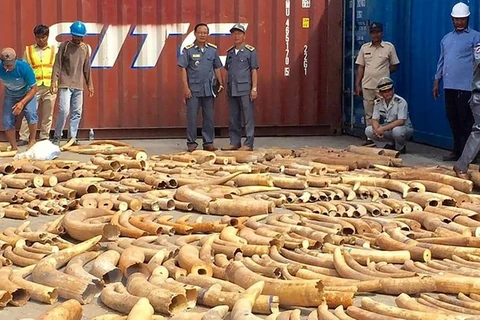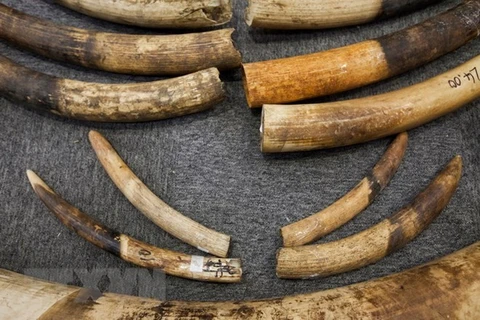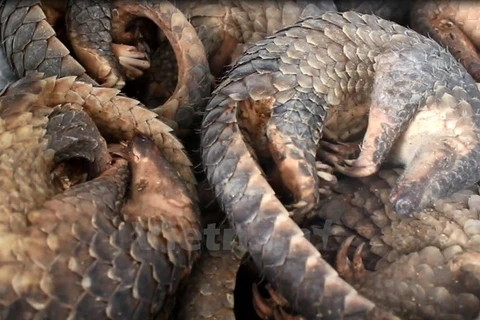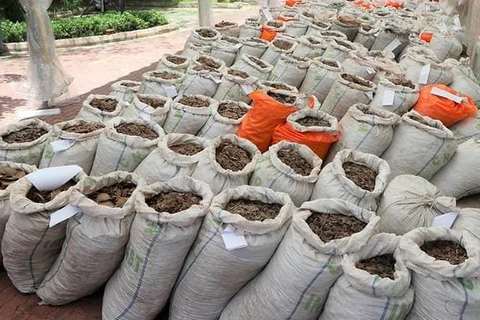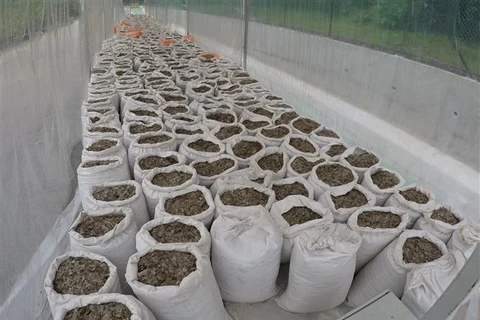Hanoi (VNA) – Singapore said on July 23 that the country had seized 8.8 tonnes of elephant ivory, a record haul by Singaporean authorities.
The load, estimated to be worth 12.9 million USD, came from nearly 300 African elephants, and was sent from Democratic Republic of the Congo.
Singaporean authorities said the latest seizure also contained 11.9 tonnes of pangolin scales, worth about 35.7 million USD and equivalent to close to 2,000 anteaters. It is the third major seizure of the scales in the country this year.
Singapore has seized a total of 37.5 tonnes of pangolin scales since April. The animal is one of the most trafficked mammals in the world.
The seized pangolin scales and elephant ivory will be destroyed to prevent them from re-entering the market, the Singapore Customs, Immigration and Checkpoints Authority and the National Parks Board said.
Singapore has always been inadvertently implicated in the global ivory trade for two reasons: its global connectivity, as well as the presence of a small domestic market where pre-1990s ivory can be legally sold, said Kim Stengert, chief communications officer for the World Wide Fund for Nature (WWF) Singapore.
The country is a signatory to the Convention on International Trade in Endangered Species of Wild Fauna and Flora (CITES) and says it is committed to the global effort to curb the illegal wildlife trade.-VNA
The load, estimated to be worth 12.9 million USD, came from nearly 300 African elephants, and was sent from Democratic Republic of the Congo.
Singaporean authorities said the latest seizure also contained 11.9 tonnes of pangolin scales, worth about 35.7 million USD and equivalent to close to 2,000 anteaters. It is the third major seizure of the scales in the country this year.
Singapore has seized a total of 37.5 tonnes of pangolin scales since April. The animal is one of the most trafficked mammals in the world.
The seized pangolin scales and elephant ivory will be destroyed to prevent them from re-entering the market, the Singapore Customs, Immigration and Checkpoints Authority and the National Parks Board said.
Singapore has always been inadvertently implicated in the global ivory trade for two reasons: its global connectivity, as well as the presence of a small domestic market where pre-1990s ivory can be legally sold, said Kim Stengert, chief communications officer for the World Wide Fund for Nature (WWF) Singapore.
The country is a signatory to the Convention on International Trade in Endangered Species of Wild Fauna and Flora (CITES) and says it is committed to the global effort to curb the illegal wildlife trade.-VNA
VNA

